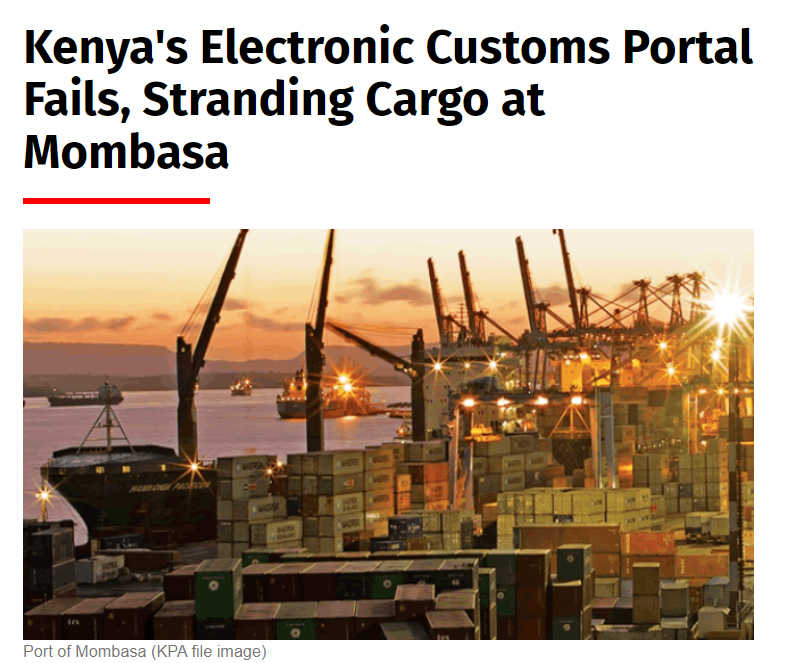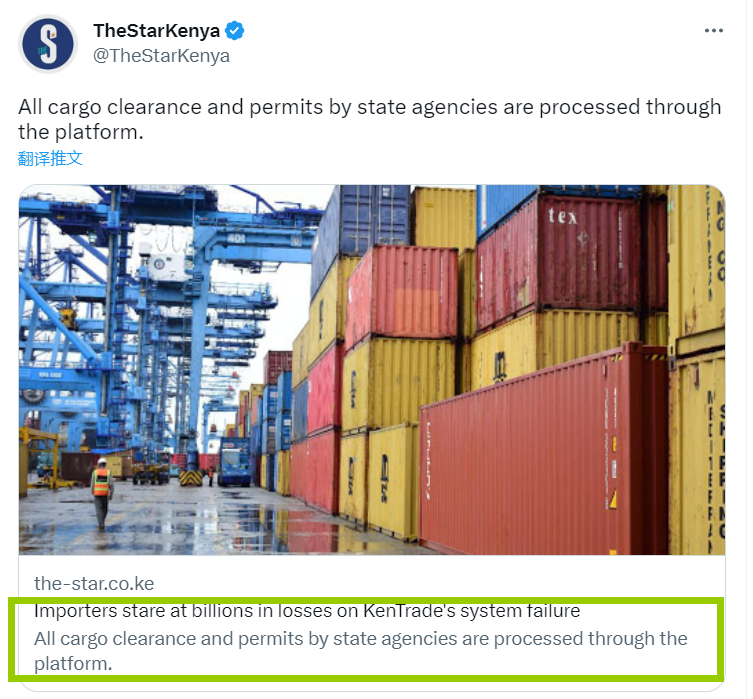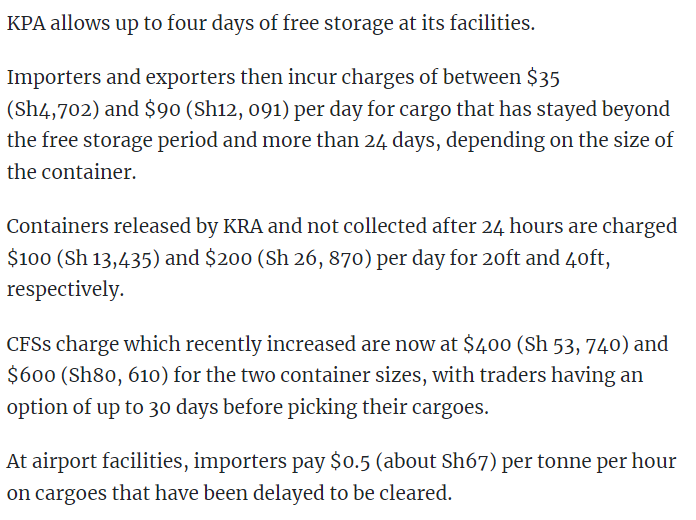According to foreign media reports, Kenya is experiencing a major logistics crisis, as the customs electronic portal suffered a failure (has lasted a week), a large number of goods can not be cleared, stranded in ports, yards, airports, Kenyan importers and exporters or face billions of dollars in huge losses.
In the past week, Kenya’s National Electronic Single Window System (NESWS) has been down, resulting in a large number of goods piling up at the point of entry and importers suffering huge losses in terms of storage fees.
The port of Mombasa (the largest and busiest port in East Africa and the main distribution point for Kenya’s import and export cargo) has been the worst affected.
The Kenya Trade Network Agency (KenTrade) said in an announcement that the electronic system is facing technical challenges and that its team is working to ensure that the system is restored.
According to stakeholders, the system’s failure triggered a serious crisis that resulted in affected cargo piling up at the Mombasa port, container freight stations, inland container terminals and the airport, as it could not be cleared for release.
“Importers are calculating losses in terms of storage fees due to the continued failure of the KenTrade system. The government must intervene urgently to avoid further losses,” said Roy Mwanti, chairman of the Kenya International Warehouse Association.
According to the Kenya International Freight and Warehousing Association (KIFWA), the system failure has left more than 1,000 containers stranded at different ports of entry and cargo storage facilities.
Currently, the Kenya Ports Authority (KPA) allows up to four days of free storage at its facilities. For cargo that exceeds the free storage period and exceeds 24 days, importers and exporters pay between $35 and $90 per day, depending on the size of the container.
For containers released by KRA and not picked up after 24 hours, the charges are $100 (13,435 shillings) and $200 (26,870 shillings) per day for 20 and 40 feet, respectively.
At airport facilities, importers pay $0.50 per ton per hour for delayed clearance.
This online cargo clearance platform was launched in 2014 to improve the efficiency and effectiveness of cross-border trade by reducing cargo hold times at the Mombasa port to a maximum of three days. At Kenya’s main airport, Jomo Kenyatta International Airport, the system is expected to reduce detention time to one day, thereby significantly reducing operating costs.
The government believes that prior to the system’s launch, Kenya’s trade process was only 14 percent digital, while it is now 94 percent, with all export and import processes almost entirely dominated by electronic paperwork. The government collects more than $22 million annually through the system, and most state agencies have seen double-digit revenue growth.
While the system plays a key role in facilitating cross-border and international trade by reducing clearance times and lowering costs, stakeholders believe that the increasing frequency of breakdowns is causing significant losses to traders and negatively impacting Kenya’s competitiveness.
In view of the country’s current critical situation, Wonegg reminds all foreign traders to plan your shipments wisely to avoid any unnecessary loss or trouble.
Post time: Apr-25-2023








